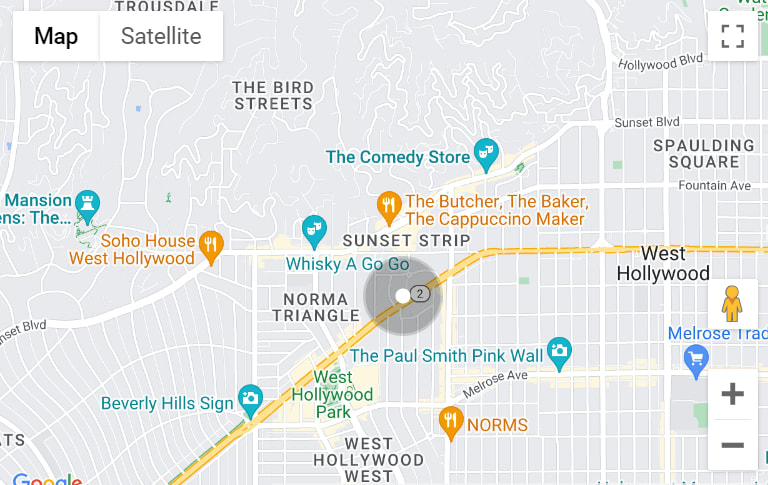A home appraisal can be beneficial in a variety of circumstances. Whether you’re purchasing a property using a mortgage, selling your current home in any circumstance other than to an all-cash buyer, or you’re refinancing your current mortgage, a home appraisal is an essential component. Home appraisals are helpful for buyers, sellers, and homeowners alike. Let’s take a closer look at what these are, how they work, and what benefits they can afford.
What is a home appraisal?
A home appraisal might seem like a complicated process, but in a straightforward description, it’s a professional unbiased opinion of a home’s monetary value. These are helpful for a variety of reasons.
Home appraisals are often used in purchase-and-sale transactions, but they are also very common in refinancing transactions as well. An appraisal is used to determine the fair contract price for a home, so in a purchase-and-sale situation, it determines if the contract price is an appropriate amount when considering the home’s features, location, age, and condition. In a refinancing situation, an appraisal is meant to reassure the lender the borrower isn’t taking more money than the home is worth.
Home appraisals are meant to help ensure no illegal mortgage lending discrimination occurs. If you feel as though you’ve been discriminated against due to religion, race, disability, age, or any other reason, push back if you feel your home has been unfairly valued.
Keep in mind lenders want to make sure that a homeowner isn’t overborrowing for a home purchase or property because the house is the only thing that serves as collateral. That means that should the borrower default on the mortgage and foreclosure occurs, the lender has only the home to recoup the money they lent. A home appraisal is designed to protect the home buyer as well as the lender.
How does the home appraisal process work?
It’s common for a money lender to order the home appraisal since the process protects their interests. The service typically costs a few hundred dollars which the borrower is responsible for paying. The appraisal must be done by a qualified appraiser, meaning they are licensed or certified — which is a requirement in every state of the country — and are familiar with local real estate.
The appraiser must be completely impartial, meaning they have no direct or indirect interest in the transaction. This helps keep the value price fair and the entire process fully unbiased.
Once you have a certified, knowledgeable, and experienced appraiser, it’s time to appraise the value of the property. The appraised property value is highly influenced by recent sales of similar properties in the area as well as current market trends.
The appraiser will look at all the home’s amenities, the square footage of the home and the yard, the number of bedrooms and bathrooms, the functionality of the floor plan, and anything else which would influence the value of the home. They will perform a thorough visual inspection of both the inside and outside of the home, making notices of anything which might affect the property’s value negatively or positively.
Once the appraiser completes their inspection, they will determine the value of your home and provide a completed appraisal report.
How much does a home appraisal cost?
The cost of a home appraisal varies depending on the location of the home, size, and condition. Some appraisers work for a flat fee, while others require an hourly rate. Keep in mind if you see an appraiser who expects to be paid by a percentage of the home’s value, this is a clear signal of unethical practice. Most home appraisals cost between $300 and $500.
What to expect from an appraisal report

The home appraisal report is an analysis and conclusion about the property value based on the appraiser’s observations of the home. An appraisal report must include all of the following:
-
A complete street map displaying the location of the appraised property using comparable sales to support their findings
-
A sketch of the exterior of the building or home being appraised
-
A thorough explanation of the square footage of the home and how it was calculated
-
Clear photographs of the home, including the front, back, and street view
-
Clear front view photographs of every comparable property which was used to determine the value of this property
-
Front exterior photographs of each comparable property used
-
All other necessary information — including data on current market sales, public tax records, public land records, etc. — that the appraiser used to determine the value of the property
What to know about home appraisals
Refinancing
If you own your home and are refinancing a conventional mortgage, then a low appraisal will prevent you from accomplishing that goal. Your home needs to be appraised either at the desired value or above the amount you are hoping to refinance your loan to be approved.
What to know when you’re a homebuyer
If you’re considering buying a home and are under contract, then a home appraisal should be the first thing you do in the closing process. This will help guarantee you don’t overpay for your home. If the appraisal comes in at or above the contract price of the home, then you can proceed with the transaction as planned. If the appraisal comes back below the contract price, this has been known to derail the entire transaction since no one wants to overpay for a property.
Should the appraised value of the home come back below the contract price, you don’t need to let the transaction fall through, especially if you like the home and want to purchase it. The homebuyer has the advantage in this situation since a low appraisal is a negotiating tool. You can easily get a lower price on the home, especially since a lender won’t allow you or any other prospective buyer to pay more than a home is worth.
While a home appraisal will often help a homebuyer get a lower price on a property, it’s worth considering a low appraisal is often unwelcome by a home seller. If the seller feels that the value determined is too low, they may believe the appraisal is inaccurate and refuse to drop the price.
A bad appraisal can and sometimes does stand in the way of a qualified buyer purchasing a quality home. In a standstill like this, it’s normal to get a second opinion using a different appraiser recommended by a different person.
Keep in mind appraisers are human beings who are capable of making mistakes or gathering imperfect information. While there are systems in place to avoid this, it is also possible for an appraiser to be biased and make an unfair evaluation.
What to know when you’re a seller

If you’re looking to sell a home, it’s obviously in your favor to get a home appraisal that is at or above the contract price on your home. If the appraisal comes back low, this means you might have to lower your home’s price to get it sold and follow through with a transaction.
You could attempt to hold out for an all-cash buyer who won't require an appraisal and therefore won’t care about or be affected by a low appraisal, but these types of transactions can be rare, even in luxury real estate. Keep in mind even a cash buyer won’t want to overpay for a home, so if they learn that your home is appraised for less than you’re trying to sell it, they may also back out.
You can request a second appraisal if you believe the first one low-balled you on your home, but keep in mind getting a second opinion doesn’t guarantee that you’ll get the number you want. If you feel your home’s value has been dragged down due to foreclosures in the area or bad neighbors, you may have some leveraging power, and you might be able to convince an appraiser your home is worth more than the properties used to compare.
What should happen after the appraisal?

Once the home appraisal is complete, then the mortgage underwriting can begin. An underwriter will review all the paperwork, including the loan file, to make sure all the required documentation is submitted. Once the underwriter assesses the risk with the loan, they either deny or approve the loan. When the loan is approved, the buyer moves forward with purchasing the home.
Find Issaquah, WA homes for sale
If you’re looking to purchase luxury real estate or sell your current home, please don’t hesitate to reach out to the Margo Allan real estate team for expert guidance every step of the way. Margo Allan and her team of experienced real estate agents can help you navigate the real estate market with success. We can help you get more attractive offers on your home and find better properties available on the market. Reach out today to see how we can help you achieve your real estate goals.
Share:
